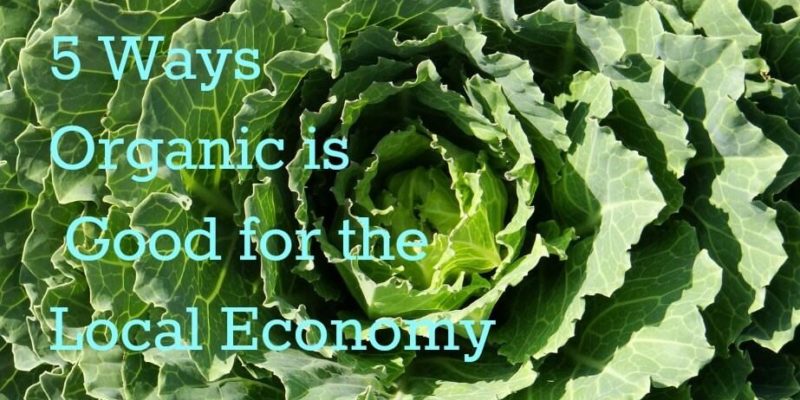Some people may think that more affluent areas have more organic farmers markets, but a recent report shows that organic food farming and production is actually a driving force in boosting local economies. In other words, it’s really really helpful in making everyone’s day.
In counties with high organic activity (crop production, livestock production, organic processors) that neighbor other counties with high activity; these 225 “hot spots” showed that organic production gave the local economy a boost. And with organics adding up to a $43.3 billion industry last year, this is a strong economic choice for businesses and policymakers to focus on.
So, how can organic food farming and organic products help boost an economy?
Organic Food Farming Boosts Median Incomes
The report showed that median household income increased by $2,094 in organic hot spots. Higher-income neighborhoods often have more access within walking and driving distance to supermarkets, farmers markets etc., and better community resources. It also means higher home prices.
Organic Food Farming is More Beneficial than Livestock
The study showed that organic livestock farming alone doesn’t create a hot spot environment. Organic produce helps the local environment with sustainable practices, allowing for local wildlife and no pesticide runoff. It also benefits the local economy more by keeping food local, and organic food costs lower (since it doesn’t have to be shipped in).
Organic Food Farming Lowers Unemployment Level
The unemployment rate is reduced by 0.84% in organic production hot spots, and by 0.22% in any type of organic hot spot. In conventional agricultural hot spots, unemployment actually rises 0.06%. Organic food farming and production creates more jobs through the need for more labor on organic farms, the smaller farm size, and reliance on smaller retail outlets.
Organic Food Farming Works Better than Major Anti-Poverty Programs
County involvement works better than anti-poverty programs. The study showed that county organic programs worked better than county wide programs like WIC, and was comparable to SNAP.
Organic Food Farming Supports Policymakers to Invest In Organic Programs
County programs and organic certifiers play a critical role in the development of these hot spots with the information and support they give to organic businesses. It also shows gives support for policymakers to create and support programs for developing organic programs.
How Can You Make Your Area An Organic Hot Spot?
The report offered the following ideas for policymakers:
- Promote organic agriculture at the federal, state and local level;
- Focus on rural development, organic transition, capital structures and barriers to investment;
- Expand outreach efforts and facilitate network effects;
- Target specific geographic areas for development, and
- Build broader coalitions to help promote organic agriculture.
Check out the report and tell Mamavation – are you in an organic hot spot? What kind of products do you see locally?


 More BPA Exposure in Womb Equals a Fatter Child
More BPA Exposure in Womb Equals a Fatter Child
Great points made … people powered industries trump corporate concerns any day of the week!